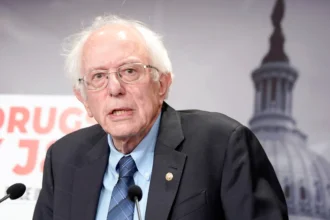VAT-registered schools will be entitlement refunds for tax paid on capital projects over the last decade.
According to official new guidance issued by tax authorities, the wealthiest and biggest elite independent schools in the United Kingdom are in line for extensive financial windfalls due to the government’s intention to impose VAT on their fees to boost public education.
A report issued by HMRC on Thursday clarified that, once registered for VAT, private schools will be entitled to back on tax paid on capital projects such as land acquisition and buildings completed in the previous decade.
The money will be refunded progressively in the next decade, and the amount and time frame will depend on the project completed.
Elite schools such as Eton College and many others have better chances of attaining a net benefit from the change, causing tension within the private sector. Smaller private schools argue that the move will make elite schools richer and widen the gap between smaller and bigger private schools.
They claim that smaller and less wealthy schools where parents of students are not so affluent will generally have to use any money they recover to keep fees down, while elite schools will use it to boost their balance sheets.
A senior fellow in the private sector told the media the elite schools would gain while the smaller schools would suffer.
“The higher echelons of the independent school sector are staying very quiet – they will be rubbing their hands [in the hope that] this is put in place as soon as possible. It is very public that Eton will pass the complete 20% VAT to parents, as will many of its peers.
“They will also be able to now claim VAT back on operating costs and are developing significant capital projects on which they will also be able to claim the VAT back. In short, the taxpayer will now be funding 20% of their running costs and capital projects. It is a windfall gain to the privileged independent schools at the expense of the taxpayer.”
The source also continued: “The smaller schools, with the parents who are going to struggle with affordability, will likely have to use any VAT reclaim to offset against school fees to help the parents. But the top-tier schools [whose parent cohort can pay the 20% VAT] will still reclaim the VAT but just keep it themselves.”
Government officials are determined to effectively implement a 20% VAT on private schools’ fees from January 1, 2025, despite the intense pressure from the private sector, teaching unions and accountants to delay the program to allow more time to adapt.
Rudolf Eliott Lockhart, head of the Independent Schools Association, stated, “This policy will be felt differently across the diverse range of independent schools. Most independent schools aren’t currently oversubscribed, so a drop in demand caused by VAT will mean fewer pupils, which could push them into closure. Nor will most independent schools be able to take advantage of VAT rules, meaning they could reclaim significant sums if they had undertaken sizeable capital spending over the previous decade. The irony is that the small number of independent schools that will be able to do this are the ones which have been used to stereotype the whole sector.
“I’m worried about the small, local independent schools that are going to be pushed into closure by this policy. These are often schools using their independence to do things differently: offering specialist SEN [special educational needs] provision, or bilingual teaching, or a performing arts focus, or meeting the needs of smaller religious communities. These are the schools that I think the secretary of state would rather like if she actually visited them. Yet these are the schools this policy is going to harm the most. There’s still time for a more nuanced policy that recognises that the independent sector is complex and diverse, just like the state sector.”
Managing director in charge of indirect taxes at the global professional services firm Alvarez & Marsal Tax LLP, Mairéad Warren de Búrca, stated, “In simple terms, if a school incurred capital expenditure last year of £10m plus £2m VAT, they are unlikely to have recovered much of the £2m VAT. They can now seek to recover up to £200,000 each year for the next nine years as their standard rated supplies increase.”
Chief executive of the Independent Schools Bursars Association, David Woodgate, stated that the complexities of introducing the latest system implied that more time is needed before it can take effect. “A short delay until September makes sense for all parties concerned, including HMRC. Our schools want to ensure they are fully compliant with the law but need clarity and support – and a reasonable timescale – from the tax authorities. The implementation window is just not long enough for all interested parties to get everything in place.”













